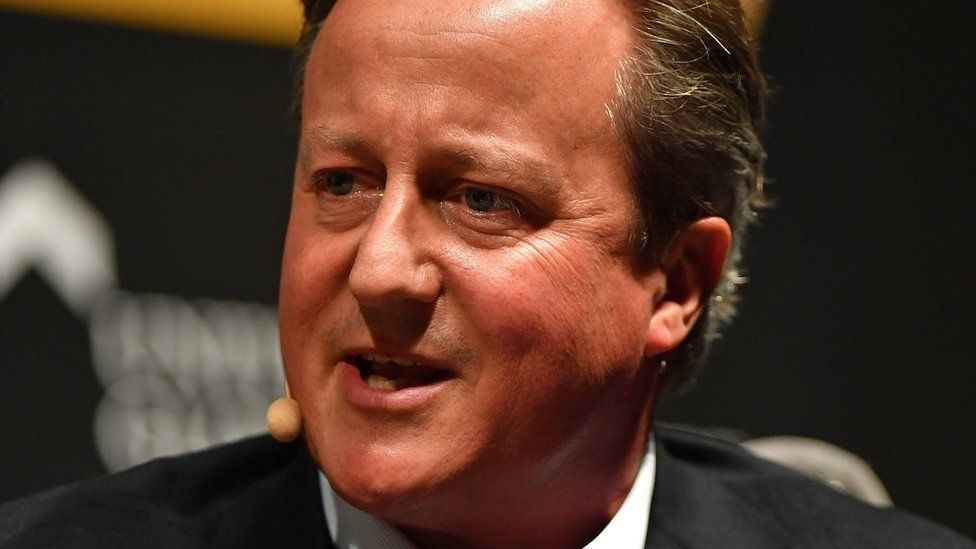David Cameron is at the centre of the UK’s largest lobbying scandal in a decade. Through emails, text messages and meetings, the former Prime Minister relentlessly pushed government and central bank officials on behalf of Greensill Capital.
In 2020, former Prime Minister David Cameron attempted to lobby the government on behalf of the finance firm Greensill Capital who employed Cameron as an advisor. Cameron tried to persuade the government to allow Greensill to join the Corporate Covid Financing Facility (CCFF), a scheme set up to provide loans to companies struggling during the pandemic, so that Cameron could gain access to public funds for himself and his business associates.
Cameron and his personal employees bombarded senior officials and ministers such as Chancellor Rishi Sunak and permanent Secretary of the Treasury Sir Tom Scholar with over 50 emails, texts and WhatsApp messages between the 5th of March and 20th of June 2020. However, Cameron’s attempts to lobby the government failed because the Treasury rejected Greensill’s application to take part in the CCFF, concluding that the firm’s proposals were not suitable. Greensill Capital has since collapsed.
Ironically, Cameron himself introduced legislation regarding lobbying in 2014 during his time as Prime Minister. He claimed that lobbying was “the next big scandal waiting to happen” in British politics and wanted to “shine a light of transparency” onto it. However, Cameron’s legislation made lobbying even less transparent than it had been previously. Lobbyists only have to sign the statutory register if they are working for a private sector consultancy firm, a group that comprises only 1% of practising UK lobbyists, or if they are a third-party lobbyist for hire. However, if they are working in-house for large corporations and/or are directly employed by a company to lobby on its behalf, they do not have to register. This explains why Cameron was able to do what he did – he was an employee of Greensill, not a consultant.
Only a minute fraction of lobbying activity has to be reported. Face-to-face meetings between ‘consultant’ lobbyists and the government, in particular their meetings with ministers and secretaries, have to be logged. But, meetings between lobbyists and other government officials, including special advisers and civil servants more junior than permanent secretaries do not have to be recorded.
There are over 4000,000 full-time civil servants working across all government departments in the UK, 44 of whom have the title of “permanent secretary” or “secondary permanent secretary”. The Lobbying Act, therefore, only succeeds in “shining the light of transparency” on the activities of 97 ministers, 1% of lobbyists and 0.01% of civil servants. Lobbyists who are not employed as consultants like David Cameron do not even have to document their lobbying activity and are not legally required to declare who they meet or what they discuss. It is therefore abundantly clear that the UK’s lobbying laws barely cover any lobbying activity at all, which makes it easy for people like David Cameron to get away with questionable behaviour.
The government have not corrected these loopholes because politicians and their friends take advantage of the inadequate laws more than anyone else. Moving forward, stricter and more precise laws regarding lobbying should be put in place and it should be a legal requirement that all lobbying activity is documented. Lobbyists should have to declare who they are meeting and what is being discussed regardless of whether they are a consultant or not, and regardless of which government employees they are meeting. If lobbying was truly made to be more transparent, it would be significantly more difficult for lobbyists to make dealings with the government behind closed doors.
It should be a criminal offence for underhand lobbyists to even attempt to persuade the government to give them public funds. UK citizens do not give the government a portion of their hard-earned money for them to give it to their greedy, millionaire friends. It should also be a criminal offence for the government to provide their friends with public funds, or to spend public funds on anything that does not benefit society.
If taxpayers’ money is not being used to support the NHS, house the homeless, tackle institutional racism, support families living in poverty and so forth, it is not being used correctly.
Shockingly, it is not a criminal offence for the Minister of the Crown to corruptly award public funds to members of the Old Boys Network. Yet, governments tend not to legislate to make their own deceitful activity a criminal offence thus the likes of David Cameron and Boris Johnson can continue performing their corrupt behaviour.
When we look at the bigger picture of the lobbying scandal, ideally, there should be more done to prevent future Boris Johnsons and David Camerons from getting into positions of power in the first place. People who genuinely want to better society should be sitting in the Houses of Parliament but unfortunately, the seats are filled by wealthy, well-connected members of the Old Boys Network who seem to get a free pass into government. The people like David Cameron do not pursue powerful positions in Parliament so that they can benefit society – they pursue powerful positions so that they themselves can benefit financially and build connections which they can abuse for their own gain, even when they are no longer working for the government.
Fiona Western
Featured Image source: The BBC

